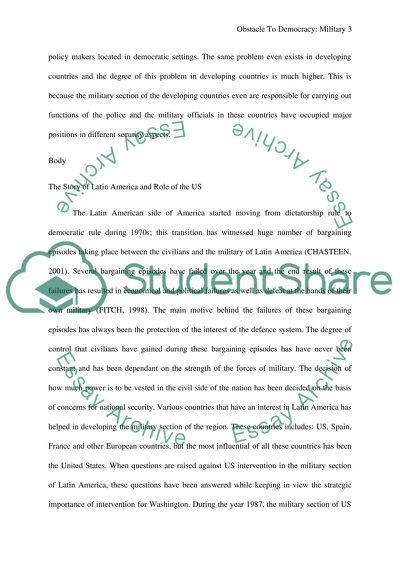Cite this document
(“Obstacle To Democracy: Military Essay Example | Topics and Well Written Essays - 2000 words”, n.d.)
Obstacle To Democracy: Military Essay Example | Topics and Well Written Essays - 2000 words. Retrieved from https://studentshare.org/history/1400759-obstacle-to-democracy-military
Obstacle To Democracy: Military Essay Example | Topics and Well Written Essays - 2000 words. Retrieved from https://studentshare.org/history/1400759-obstacle-to-democracy-military
(Obstacle To Democracy: Military Essay Example | Topics and Well Written Essays - 2000 Words)
Obstacle To Democracy: Military Essay Example | Topics and Well Written Essays - 2000 Words. https://studentshare.org/history/1400759-obstacle-to-democracy-military.
Obstacle To Democracy: Military Essay Example | Topics and Well Written Essays - 2000 Words. https://studentshare.org/history/1400759-obstacle-to-democracy-military.
“Obstacle To Democracy: Military Essay Example | Topics and Well Written Essays - 2000 Words”, n.d. https://studentshare.org/history/1400759-obstacle-to-democracy-military.


